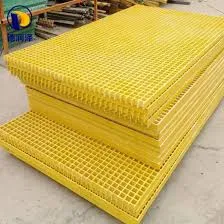
-
 Afrikaans
Afrikaans -
 Albanian
Albanian -
 Amharic
Amharic -
 Arabic
Arabic -
 Armenian
Armenian -
 Azerbaijani
Azerbaijani -
 Basque
Basque -
 Belarusian
Belarusian -
 Bengali
Bengali -
 Bosnian
Bosnian -
 Bulgarian
Bulgarian -
 Catalan
Catalan -
 Cebuano
Cebuano -
 China
China -
 China (Taiwan)
China (Taiwan) -
 Corsican
Corsican -
 Croatian
Croatian -
 Czech
Czech -
 Danish
Danish -
 Dutch
Dutch -
 English
English -
 Esperanto
Esperanto -
 Estonian
Estonian -
 Finnish
Finnish -
 French
French -
 Frisian
Frisian -
 Galician
Galician -
 Georgian
Georgian -
 German
German -
 Greek
Greek -
 Gujarati
Gujarati -
 Haitian Creole
Haitian Creole -
 hausa
hausa -
 hawaiian
hawaiian -
 Hebrew
Hebrew -
 Hindi
Hindi -
 Miao
Miao -
 Hungarian
Hungarian -
 Icelandic
Icelandic -
 igbo
igbo -
 Indonesian
Indonesian -
 irish
irish -
 Italian
Italian -
 Japanese
Japanese -
 Javanese
Javanese -
 Kannada
Kannada -
 kazakh
kazakh -
 Khmer
Khmer -
 Rwandese
Rwandese -
 Korean
Korean -
 Kurdish
Kurdish -
 Kyrgyz
Kyrgyz -
 Lao
Lao -
 Latin
Latin -
 Latvian
Latvian -
 Lithuanian
Lithuanian -
 Luxembourgish
Luxembourgish -
 Macedonian
Macedonian -
 Malgashi
Malgashi -
 Malay
Malay -
 Malayalam
Malayalam -
 Maltese
Maltese -
 Maori
Maori -
 Marathi
Marathi -
 Mongolian
Mongolian -
 Myanmar
Myanmar -
 Nepali
Nepali -
 Norwegian
Norwegian -
 Norwegian
Norwegian -
 Occitan
Occitan -
 Pashto
Pashto -
 Persian
Persian -
 Polish
Polish -
 Portuguese
Portuguese -
 Punjabi
Punjabi -
 Romanian
Romanian -
 Russian
Russian -
 Samoan
Samoan -
 Scottish Gaelic
Scottish Gaelic -
 Serbian
Serbian -
 Sesotho
Sesotho -
 Shona
Shona -
 Sindhi
Sindhi -
 Sinhala
Sinhala -
 Slovak
Slovak -
 Slovenian
Slovenian -
 Somali
Somali -
 Spanish
Spanish -
 Sundanese
Sundanese -
 Swahili
Swahili -
 Swedish
Swedish -
 Tagalog
Tagalog -
 Tajik
Tajik -
 Tamil
Tamil -
 Tatar
Tatar -
 Telugu
Telugu -
 Thai
Thai -
 Turkish
Turkish -
 Turkmen
Turkmen -
 Ukrainian
Ukrainian -
 Urdu
Urdu -
 Uighur
Uighur -
 Uzbek
Uzbek -
 Vietnamese
Vietnamese -
 Welsh
Welsh -
 Bantu
Bantu -
 Yiddish
Yiddish -
 Yoruba
Yoruba -
 Zulu
Zulu
frp desalination pipes and fittings for efficient water treatment
Efficient Water Treatment The Role of FRP Desalination Pipes and Fittings
As the global demand for freshwater continues to rise, innovative solutions are essential to ensure sustainable water supply. One of the most promising advancements in this sector is the use of Fiber Reinforced Polymer (FRP) desalination pipes and fittings. These materials offer significant advantages for efficient water treatment, particularly in desalination processes.
FRP is composed of a polymer matrix reinforced with fibers, commonly glass or carbon. This combination imparts exceptional strength and durability while remaining lightweight. When applied to desalination, these properties translate into longer-lasting infrastructure that can withstand the corrosive effects of seawater, thereby reducing maintenance costs and increasing operational efficiency.
One of the primary challenges in desalination is managing the corrosive nature of saline environments. Traditional materials such as steel or concrete often succumb to corrosion, necessitating expensive and frequent repairs. In contrast, FRP materials are inherently resistant to corrosion, allowing desalination plants to reduce downtime and extend the lifespan of their systems.
Another significant advantage of FRP is its high tensile strength-to-weight ratio. This property allows for easier handling and installation of pipes and fittings, which can lead to quicker project completion and reduced labor costs. Furthermore, the lightweight nature of FRP means that it requires less energy to transport, contributing to a more sustainable supply chain.
frp desalination pipes and fittings for efficient water treatment

Additionally, FRP desalination pipes and fittings can be customized to meet specific project requirements. They can be molded into various shapes and sizes, which makes them versatile for different applications within desalination plants. This flexibility enables engineers to design systems that maximize efficiency, ensuring optimal water treatment outcomes.
The use of FRP in desalination processes also ensures a lower impact on the environment. With global environmental concerns such as climate change and water scarcity, using sustainable materials can significantly reduce the ecological footprint of water treatment facilities. FRP materials are often produced with a focus on sustainable practices, further enhancing their appeal.
Moreover, the smooth internal surfaces of FRP pipes reduce biofouling and scaling, which are common issues in desalination and other water treatment processes. This characteristic not only improves the flow rates of treated water but also minimizes the need for chemical treatments, making the system more environmentally friendly and cost-effective.
In conclusion, FRP desalination pipes and fittings represent a pivotal advancement in efficient water treatment technologies. Their corrosion resistance, lightweight nature, customization potential, and reduced environmental impact make them an ideal choice for modern desalination plants. As water scarcity continues to challenge many regions globally, the adoption of innovative materials like FRP will be crucial in developing sustainable solutions that ensure a reliable supply of clean water for the future.
Latest news
-
Exploring the Benefits of Top Hammer Drifter Rods for Enhanced Drilling PerformanceNewsJun.10,2025
-
High-Precision Fiberglass Winding Machine for GRP/FRP Pipe Production – Reliable & Efficient SolutionsNewsJun.10,2025
-
FRP Pipes & Fittings for Shipbuilding - Corrosion-Resistant & LightweightNewsJun.09,2025
-
Premium FRP Flooring Solutions Durable & Slip-ResistantNewsJun.09,2025
-
Premium Fiberglass Rectangular Tanks Durable & Lightweight SolutionNewsJun.09,2025
-
Tapered Drill String Design Guide Durable Performance & UsesNewsJun.09,2025









